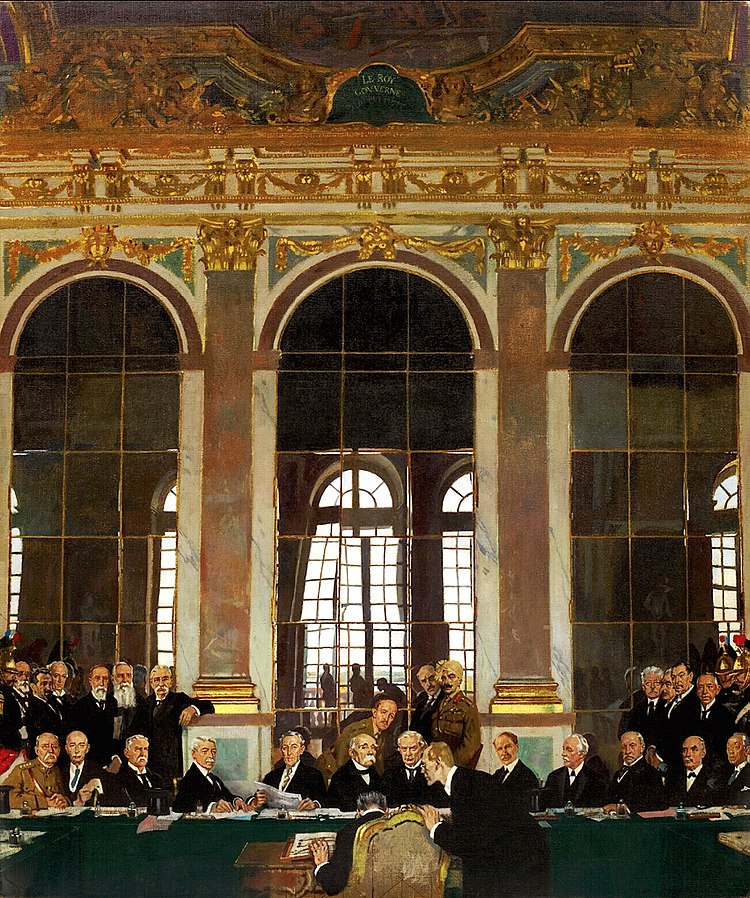
Romania became a kingdom in 1881, yet the government continued its refusal to grant collective emancipation to Jews as demanded by the Berlin Congress and stated that anyone who was not a Christian could be granted full citizenship on an individual basis, provided that two Houses of Parliament approved each request separately. Romanian-born Jews were defined for the first time as "foreigners not under foreign protection", and as aliens they could receive individual citizenship. The ratification of Article 7 of the Constitution granted civil rights to the Jews who had participated in the War of Independence, and turned all the Romanian Jews into "stateless" and foreigners in their own country until 1919. Moreover, in the 35 years before World War I only a few hundred Jews had been granted Romanian citizenship, all of them belonged to a high socio-economic status and were required to pay large sums in order to obtain citizenship.
At the end of World War I, on the eve of the opening of the Paris Peace Conference, Romanian Jews and Jewish organizations, such as Alliance Israelte Universelle, the American Joint Distribution Committee and the American Jewish Congress, struggled for civil and political equality. This was after the Romanian government of Brătianu published a new law on June 13, 1919 regarding citizenship in which the Jews are not mentioned.
The Union of native Jews (UEP) protested against the law, and on February 20, Alliance Israelite Universelle sent to the president of the conference in Paris a memorandum on the Jewish question in Romania, including a text which, according to the proposal, should be included as part of the agreement with Romania: "All Jews born and who live in Romania except those registered on the list of foreign consulates, i.e. foreign nationals, will be recognized as citizens of Romania. Proof of foreign citizenship will fall upon the Romanian government". A similar document was sent on behalf of the JDC's Foreign Affairs Committee, as well as reports on the situation of the Jews in Romania and on the true nature of rule under Brătianu.
With the signing of the Peace Treaty of Paris in 1919, in which the annexation of the new territories to Romania was approved, the questions of civil rights and equality of the Jews were raised again; in fact, this created a new situation since the Jews from the three new territories were all citizens of their countries of origin. In this respect Romania could not leave the Jews of the "Regat" without citizenship. At the Peace Conference in Paris, the Romanian delegation objected to the requirement to grant citizenship to the Jews of the annexed areas and attempted to repeat the tactics of granting individual citizenship which had been established unilaterally by Romania after the Berlin Congress. The position of the great powers was clear, but the Romanian Prime Minister, the liberal Ion Brătianu, tried to find a formula that would enable the Romanians to outsmart and prevent the naturalization of all Jews. The Supreme Council did not accept Brătianu 's position; he left the peace conference and resigned as prime ministeron September 12, 1919.
But the Jews refused in an organized manner to submit applications to the courts for citizenship. Under the pressure of the great powers, a new law was passed, in which a "request" was sufficient for obtaining Romanian citizenship. At the same time, the Romanian authorities tried to create administrative obstacles for the implementation of this law.
Following the protests, on May 22, 1919, a second law was issued by Bratianu, in which he tried to obtain a version that would enable the Romanians to prevent the granting of citizenship to Romanian Jews. However, the 'Committee for the Protection of the Jews of Romania' did not back down and submitted a new memorandum, which proposed including in the peace treaty with Romania a clause requiring the granting of civil rights to the Romanian Jews. The Romanian government objected, and finally a new article was inserted; Article 7 of the Convention on Minorities, signed on December 9, 1919, which stated: 'Romania undertakes to recognize Jews living in Romanian territory and who are not citizens of other countries as Romanian citizens with all rights and without any further procedures.
The problem of Romanian Jewry had finally found its solution in this agreement, which would be attributed first and foremost to the Jewish organizations in the West and to French diplomacy. This ended the long international struggle for Romanian Jewry. The forced emancipation took place within the framework of ‘Greater Romania' thus ending discrimination against the Jews of the Old Kingdom, of Romania (Regatul Romaniei), whose fellow Jews in Serbia had been emancipated since the Russian Revolution in 1917, and the Jews of Bukovina and Transylvania since 1867.